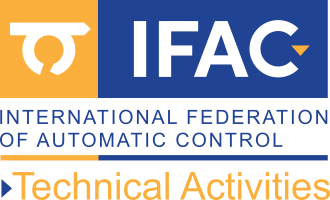AAC13 in Tokyo
AAC 2013 IN JAPAN
For the first time since its foundation, the AAC Symposium moves to Asia, outside Europe and America. The 7th IFAC Symposium on Advances in Automotive Control has been held from September 4th to 7th, 2013, at the National Olympics Memorial Youth Center (NYC) in Tokyo, Japan. Further information about the conference is available at the AAC13 Website.

The venue

AAC13 Participants (click here for a larger image, about 3 MB)
Some figures
Opening speech
午前中な. Welcome to the 7th Symposium on “Advances in Automotive Control” of IFAC, the International Federation of Automatic Control. My name is Gianfranco Rizzo, I am professor of Mechanical Engineering at the University of Salerno, Italy. As the Chair in charge of the IFAC Technical Committee Automotive Control since 2008, I am very proud and honored to serve as the Chair of the International Program Committee of this Symposium.
As you know, IFAC deals with automatic control. Automatic control is a very pervasive discipline, with important and countless applications in mathematics, in engineering, in economics, in biology, in medicine, in education and in social science. All these topics are very general indeed, and their interest is on a worldwide scale. Nevertheless, the activities of IFAC still reflects in some extent a geographical polarization, due to the fact that it was born in Europe, in 1957.
This aspect is also evident in the story of our event. The first workshop “Advances in Automotive Control” was held in 1995 in Ascona, in Switzerland, aiming to bring together experts both from industry and academia to discuss leading-edge technology in automotive control. After 3 years, the event was repeated at Mohican State Park, under the organization of the Ohio State University. Afterward, the workshop returned to Europe, to Karlsruhe, in 2001. In the meantime, the participation to this event was significantly growing in terms of quantity of researchers involved and quality of papers. Therefore, it was decided to upgrade this IFAC event from workshop to symposium. The fourth event, the first as a Symposium, was therefore held in 2004 in Salerno, Italy. After 3 years, we returned to United States, in Monterey, under the organization of the Stanford University. In 2010 the Symposium came back to Europe, in Munich. And, finally, in 2013 the Symposium Advances in Automotive Control arrived for the first time in Asia, in Japan. Next two issues are planned in Sweden and in France.
The organization of this event in Asia, specifically in Japan, is therefore a first step to bridge a gap, considering the numerous and high level activities in the field of automotive control in this area of the world. The figures of this conference evidence a high number of participants and papers from Japan, but a significant number also from China and Korea. Anyway, the participation from Europe has remained substantial, and also a significant contribution form United States has been maintained. Moreover, the participation from industry is particularly relevant, almost 40%. Well, we have good reasons to say that this is and will be a successful event.
I would thank professor Masao Nagai and all the members of the National Program Committee for the excellent organization work. I would also thank the members of International Program Committee, and all the reviewers, for their cooperation in the selecting good papers, as well as all the authors.
A special thanks to the organizations that sponsored and co-sponsored this event: the Society of Instrument and Control Engineers (SICE), Science Council of Japan, Society of Automotive Engineers of Japan,Inc. (JSAE), CAA Technical Committee on Control Theory, The Korean Society of Automotive Engineers (KSAE).
Finally, let me spend few words to invite the members of TC to attend the meeting, this evening at 6 PM in room 502. I would also invite all people interested in our activities to assist to the meeting and to consider applying for membership.
Thank you very much, ありがとうございました。

